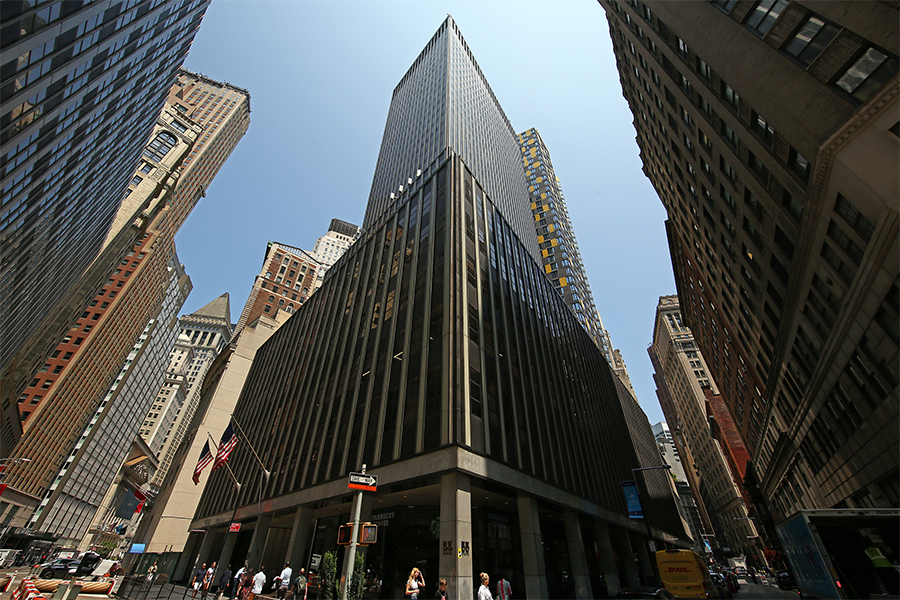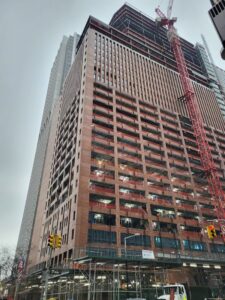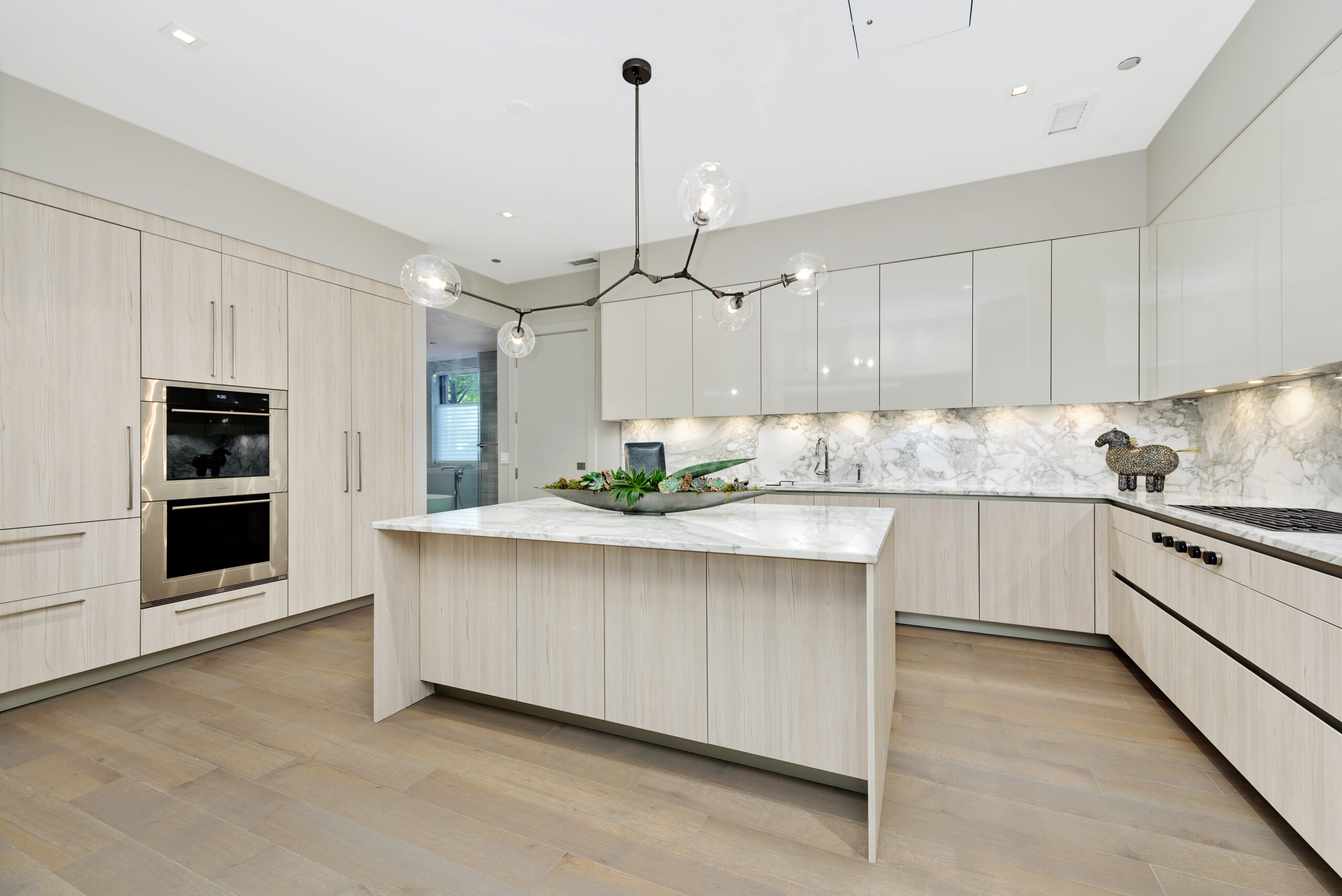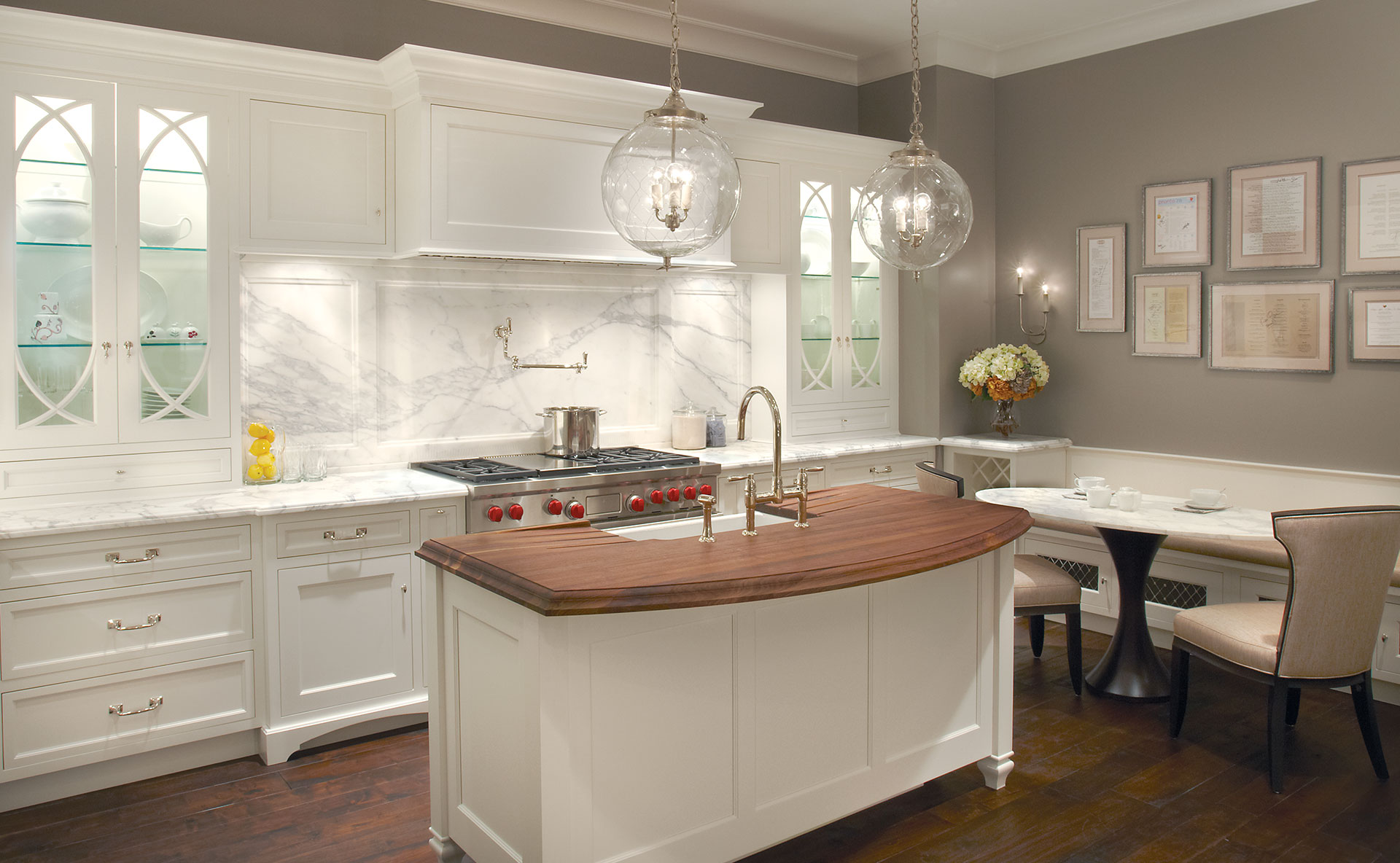Amidst the many ongoing conversations around progress in the design and build industries, perhaps no topic is more prevalent than that of sustainability. While frequently considered to be simply a “buzzword” in the industry, the multifaceted practice of sustainability is actually interwoven into the design-build process in a variety of ways — and perhaps nowhere as clearly as in conversion projects.
At 210 Design House, we’re constantly participating in sustainability conversations with our partners, manufacturers, and clients — and when it comes to conversion projects, sustainability is built directly within the very fibers of our work. Not only does 210 welcome the opportunity to breathe new life into existing architecture, but we relish the challenge of weaving sustainability into each and every detail of our conversion projects.
What is a Conversion Project?
In the age of remote work, office buildings are sitting emptier than we’ve seen in previous years. While large companies (especially in big cities) may have previously utilized every square inch of a high-rise office building, these structures are now sitting at much lower occupancy rates — which is not only wasteful from a materiality and land-use standpoint but also results in monetary loss for property owners.
This is where conversion comes in. While the need for office space is declining, residential occupancy remains high (as high as 97 percent in New York City and 94 percent in Chicago). “Reusing a commercial building and converting it for residential use is not only a practical use of existing space, but it’s also financially lucrative in terms of value,” says 210 Design House President Rama Dandamudi. In this case (and many others), you could say it pays to be sustainable.

25 WATER STREET: The largest office-to-residential conversion in the United States
Image credit: CetraRuddy
The 210 Approach to Conversion
210’s role in conversion projects includes world-class project management — meaning we’ll not only help developers and designers select the products that are best for the unique aesthetic and practicality needs of their conversion projects, but we’ll also assist in adding value and quality to every inch of the space, in turn allowing for longer-lasting designs.
“More builders, designers, and architects need to be taking a holistic approach to sustainability,” Dandamudi says. “We don’t scoff at the challenge that comes from designing an existing space. We welcome it and the opportunity to add high-quality design and products to existing structures.”
This focus on value is interwoven into every offering at 210 Design House. Our partners, as well as our in-house brands, believe strongly in the value of high-quality materiality. “When you’re using and producing lower-quality products, you’re committing to work that will need to be redone in a shorter amount of time,” Dandamudi says.
Our Sustainability Partners
Our multi-housing cabinetry brand, Concerto, exemplifies this key value. Created to address the unique needs of large multi-housing projects while still prioritizing quality, the Concerto team offers single-family home luxuries on the multi-housing scale. Sustainability is endemic to the product. Concerto cabinetry is FSC & PEFC Certified, features ultra-low formaldehyde emission panels, is CARB Phase II and EPA’s TSCA Title 6 compliant, and meets LEED goals.
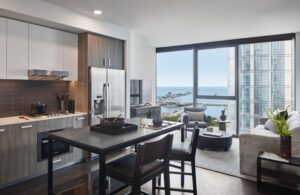
Concerto Kitchen project by the 210 Design House team
In addition to Concerto, our partner brands showcase our commitment to sustainability as well. Snaidero has been certified by FSC® (Forest Stewardship Council®), the most important institution in existence that vouches for the origin of wood. Plain & Fancy processes and recycles finish materials for use as solvents and implements comprehensive recycling programs. The brand also meets the Toxic Substances Control Act’s Title VI standards for minimal formaldehyde emissions on sheet goods and purchases and applies finishes according to the Pennsylvania Department of Environmental Protections (DEP) regulations. MisuraEmme was awarded the prestigious international mark Aquaver, granted by ANVER (Associazione Verniciatori Italiani), which certifies their use of varnishing technologies with low environmental impact. This certification bears the number 001, which denotes MisuraEmme’s pioneering adoption of this initiative.
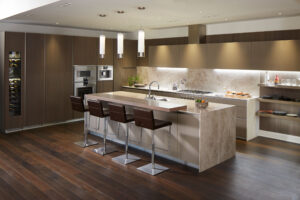
Snaidero Kitchen at the Residences at the St.Regis, Chicago by 210 Design House
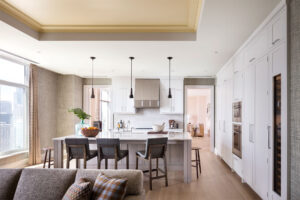
Plain & Fancy Custom Millwork Kitchen at One Bennett Park, Chicago by 210 Design House
Conversion v. New Build
Infusing quality and sustainability is not limited to conversion projects. It is, of course, prioritized in new builds as well, and there’s no denying that new builds provide their own benefits, namely offering endless options for customization. (Just wait to see what we do with 1010 Church Street in Nashville, set to be the city’s tallest skyscraper.) But conversion projects sustainability benefits are paramount, going beyond basic building reuse.
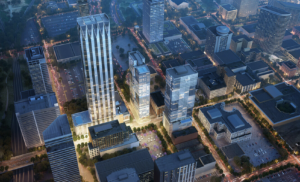
Paramount (1010 Church Street) by Goettsch Partners is slated to be Nashville’s tallest building
With completion taking place in as little as one-third of the time spent on a new-build project, conversion reigns supreme in terms of efficiency. This rapid pace is driven, in part, by tailoring designs to the existing structure, with customizations applied where they make the most impact.
Rather than building creativity from the ground up, we’re challenged to uncover hidden opportunities, transforming limitations into inspiration. In New York City, 25 Water Street is set to be the country’s largest conversion project yet, and 210 is honored to be a part of the team creating an unparalleled level of bespoke design in the project.
25 Water Street, now under reconstruction
In the Chicago market, there’s growing interest in the practice of office-to-residential conversion. As office and remote work cultures continue to shift, more of Chicago’s commercial properties will soon be flipped. We look forward to offering our expertise in sustainability, quality, and value to these projects, as well as to new builds like our exciting project at 400 Lake Shore Drive, yet another example of how 210 continues to shape Chicago’s ever changing skyline.
For more information on how 210 Design House prioritizes sustainability through quality and conversion, visit us in our River North showroom.
